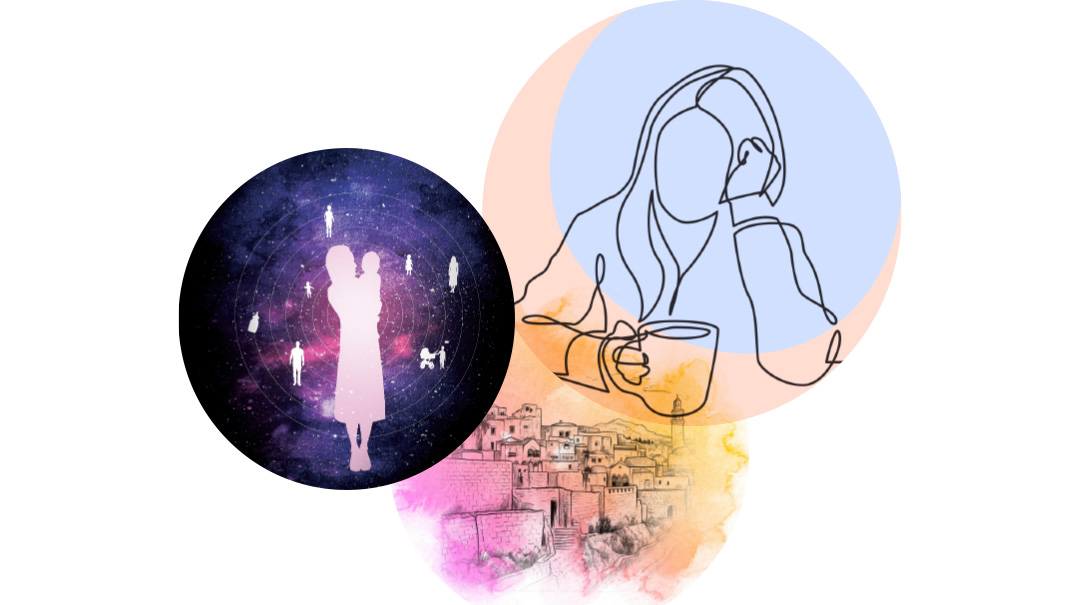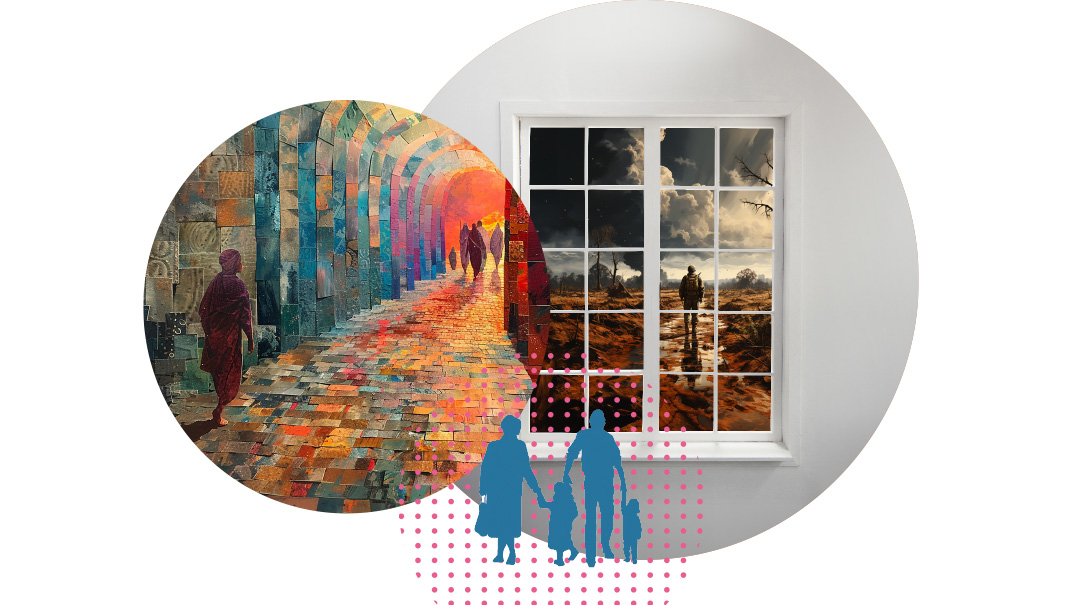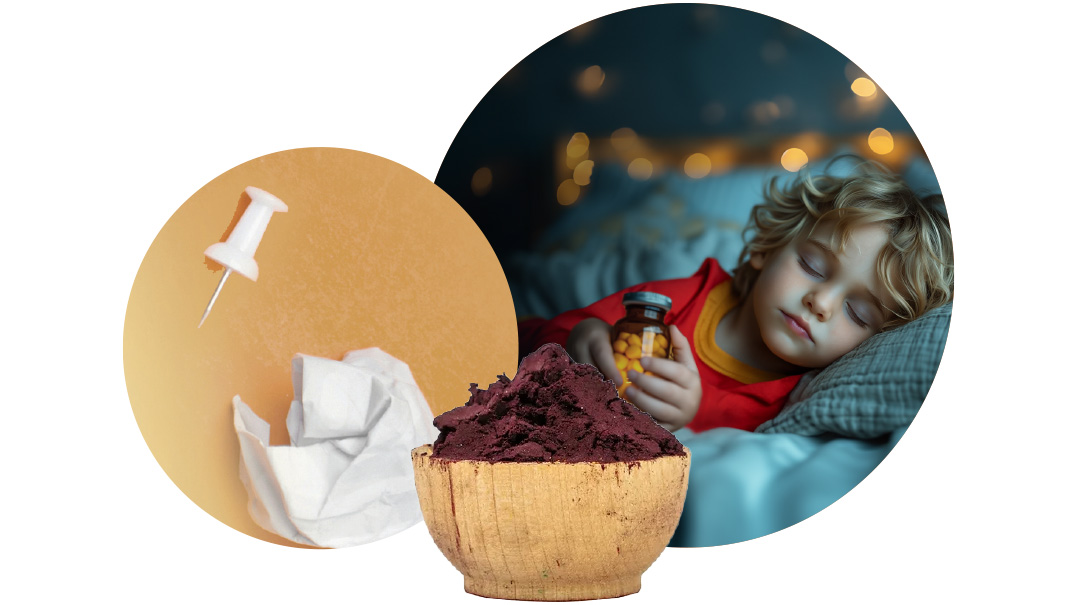Family First Inbox: Issue 842

“For those studying psychology in secular environments, this is by far the most insidious messaging you’ll hear”

Men Can Also Have It [When Mommy Has Cancer / Issue 840]
My wife showed me the article When Mommy Has Cancer, and it resonated very loudly with me. Why? A few months ago, I was diagnosed with non-invasive ductal carcinoma in-situ (DCIS) at my annual mammogram screening.
I’ve been having annual mammogram screenings for the last 16 years since, through a series of Divine interventions, I became aware that I was a BRCA gene carrier.
Breast cancer is prevalent in my family: My mother was diagnosed with breast cancer at age 72 and she survived another 20 years, and my maternal grandmother died of breast cancer at age 54.
What is so alarming is that the incidence of breast cancer in men is less than 1 in a 100 compared to women, yet the mortality rate for men is significantly higher than for women. The reasons given for the higher mortality rate among men is that generally men present with symptoms at an advanced stage of the breast cancer.
My doctors say, “You have a story to tell!” The awareness of males being BRCA carriers is sadly lacking, even among medical professionals. So I’m bringing my story to the attention of the readers in the hope that other men can “connect the dots,” benefit from my experience, survive breast cancer as well, and give daily thanks to Hashem!
Anonymous
Johannesburg, South Africa
No Longer Alone [Lifetakes / Issue 840]
I wanted to thank Shiffy Grun for her raw honesty in her article “Still a Sacrifice,” about the challenge of being married to someone who is far less serious about ruchniyus growth than she is.
I, too, am a wife who is trying to “make it” in Eretz Yisrael with a certain vision of how my Torah home should look, and on occasion, my husband’s actions don’t directly mirror that vision. I, too, share in my own amount of tongue-biting and celebrating the small steps toward change.
Your article brought tears to my eyes, yet comfort to my heart. I understood that I’m not the only one going through this struggle Hashem has chosen to give me. While reading your words, which were so perfectly said, I felt a bit of a hug through the page, telling me that I’m not in this alone.
Name Withheld
Been There, Done That [Lifetakes / Issue 840]
I don’t know Shiffy Grun, but I wish I did so I could tell her a few things.
I found that your words penetrated deeply. I was once that girl who looked at my husband’s late wake-ups, lack of learning, and missed minyanim the way you seem to. Like he was taking away from my Olam Haba, like I’d been cheated out of a deal. I wished I could tell people where he learned or taught Torah. I felt like we were a fake, a couple in a kollel community with no kollel in our lives.
My story is different from yours, but it’s also quite similar. Actually, it’s quite similar to many women’s, the wife who wishes her husband was frummer, more organized, less anxious, more successful, less frugal... and the list goes on. How many women out there actually have a spouse who is exactly — or even remotely — what they pictured when they were a googly-eyed girl?
We want our husbands to accept us as we are — whether we are suffering from morning sickness, taking a mental health day, splurging on a new outfit, or crazily cooking for Shabbos. We’re moody, unpredictable, sensitive — and we want them to be fine with all that. Why are we so “not fine” with them?
You explain the problem as one of spirituality, and your solution is: “Instead of serving Him through my husband’s learning, I serve him with my very own self.” But perhaps this isn’t a ruchniyus issue; it’s a gashmiyus one. For sometimes we take the spiritual and make it mundane. The name of the kollel, the outsider’s perspectives, the show — are these all not actually superficialities?
Is your husband kind? Is he patient? Is he your friend?
Is he assertive? Is he responsible? Is he a provider?
I don’t know the answers, maybe some are yes and maybe others are no. Maybe he makes mistakes, like going to kevarim instead of helping you, or leaving you out of his decisions that affect you as well. Maybe he allows his work to take priority over his religious obligations.
And at the same time, have you asked yourself enough of these questions, to uncover what your husband is instead of what he’s not? You sound like a deep person. I imagine if you married him, he is, too. You would do yourself well to stop feeling like you’re sacrificing, like you’re disappointed with his lack of performance.
I won’t pretend this is easy, but I know it’s possible. I’ve been there.
Wishing you much hatzlachah,
A Proud Wife
The Real You [Family Reflections / Issue 840]
I read Sarah Chana Radcliffe’s column about making sure we let our values direct our behavior and not our feelings, once, twice, then a third time. Wow. Thank you, Sarah Chana, for crystallizing a thought I’ve slowly been building over many years while studying psychology.
As the only Jew in a psychotherapy course, this message has been something I’ve needed to hold on to time and time again: That feelings aren’t king, Hashem is.
For those studying psychology in secular environments, this is by far the most insidious messaging you’ll hear. As frum Yidden, we know our overt boundaries, we know we’re uncomfortable when hearing bad language or about halachically forbidden relationships. What we might not be as inoculated against is this idea that we should obey our feelings over all else.
With daas Torah, and with solid, stable frum therapists like Sarah Chana in the field, we can remind ourselves of the importance of keeping our adult selves in the driver’s seats, even while allowing our child selves to feel and heal.
Devorah G.
London, UK
What about Sephardic Cholent? [Family Table / Issue 840]
Your cover, “How Do You Cholent?” was quite catchy and intriguing. Cholent is like challah, you make the same recipe each week, and it comes out differently each time and by each person that makes it.
As an Ashkenazi who married a Moroccan boy, I had to learn how to make the traditional “dafina” (Moroccan cholent). It’s different from Syrian “chamin.” Each town had their own mesorah of how to make this.
I was quite surprised that you didn’t have at least one recipe for a Sephardi cholent.
Anonymous
Schools Are Hurting Our Kids [Editor’s Letter / Issue 839]
Thank you, Ricky Boles, for speaking truth to power in your editorial decrying the amount of junk schools distribute to their students.
The nosh situation in schools has gotten out of control. I know a few teachers who quietly admit this as well, even as they’re giving out treats. There’s a new standard now. The easiest, cheapest, laziest way to reward a kid is with food. But that sets horrible habits for life. There is no part of the current reward system (in most schools in Lakewood, at least) that isn’t hurting our children.
From a health perspective, who knows what will be? We do know that diabetes and autoimmune diseases are majorly on the rise, and we can hardly be shocked. But also, just the awful idea that junky food is the reward for good behavior or marks. Our kids deserve to taste real satisfaction, not sugar. By doing this, we’re not giving to them, we’re depriving them. I know that many mothers are extremely upset with the growing nosh trend, but no one says much.
Name Withheld
A Super-Important Point [A Better You / Issue 839]
I’d like to thank Abby Delouya for writing about the expectation that your spouse should be your best friend, and how that “expression doesn’t do justice to the full meaning of marriage.”
This inset is so important to my mind that I would have liked to see it plastered in bold letters along the whole page spread!
As someone certified in marriage counseling, and as a local ear-lender among family and friends, I so often hear the disappointment that, “S/he can’t always relate to what I say;” the feeling that, “There’s something wrong with me or our marriage if my spouse is not the be-all and end-all of all relationships;” the guilt that, “Sometimes I prefer to share this with my sister/BFF who understands me far better than my husband can;” the fear that, “I’m the only one who isn’t living with a best friend like my kallah teacher said he would be....”
Please remember: Connection, security, and attachment create the happiest marriages, regardless of whether you had more fun ice skating with your bestie than you ever did with your spouse who prefers to stay home.
R. N.
Israel
Rooting for the Mothers [Meltdown / Issue 838]
When I first saw the topic of your new diary serial about raising a child on the spectrum, I almost cried. I’m the mother of an adult son with ASD, and the way has been very lonely.
When my son was first diagnosed, there was little understanding of the “spectrum,” and many people honestly expressed surprise, saying things like, “He speaks so nicely” or “He looks so normal.”
Yes, he did do all those things, but he was still very handicapped, and it was almost impossible to explain. Let me try to describe what living with an autistic adult is like: it’s like living with a cranky 90-year-old man who screams when it’s too noisy, or when the light is on, or when someone touches his glasses. And this crotchety, complaining guy is your son, who also can explode in rage or throw tantrums or display many other behaviors you don’t associate with autism.
There are few warm feelings with this handicap. Our children aren’t the ones featured on advertisements for summer experiences with a smiling volunteer. Our children don’t go to these social events or even agree to speak to a typical volunteer. Instead, the burden of their needs is ours 24/7. It’s heavy and, yes, lonely at times.
Kudos to Family First for finally featuring this widespread handicap. And to all other parents out there; it takes one to know one. We’re rooting for you.
Chava I.
RBS
Reach Out to Divorced Mothers [To Be Honest / Issue 838]
I wanted to extend a big thank-you to the author of the article about divorced mothers, as it brings an awareness that is much needed in our communities. Ten years ago, I was asked to speak for Sister to Sister, an organization that supports single mothers, and I accepted.
Of all the speaking jobs I’ve taken over the years, of the many wonderful organizations I’ve been privileged to be a part of as a presenter, something about this organization and its participants touched me so deeply.
Maybe it was because I noticed how these incredible women were doing the job of two parents, while carrying such a heavy burden. Maybe because I saw the organizers providing support in the most humble and generous way. Maybe because each woman I met was more impressive than the next, and many have become my good friends.
It was the first time I was exposed to this demographic, and I did some research to find out what resources were available. There weren’t many, especially when it came to dating coaching. I knew then and there that I would help a demographic that was underserved, and I developed a special dating curriculum for those looking to remarry, which took into account their unique needs.
Baruch Hashem, I’ve been privileged to be involved with hundreds of stalwart, beautiful, courageous divorced women (and men!) who’ve enriched my life and inspired me. Thank you for bringing this awareness to our community. Let’s receive the message the article gave and think of one family in your community and reach out. It’s a win-win! Thank you, Family First, for continuously “growing” us with your thoughtful articles and stories.
Rochel Goldbaum
Founder, Directed Dating Approach
Cofounder, CORE
Let Go of the Judgment [To Be Honest / Issue 838]
I want to thank Batsheva Kirsch for her incredibly articulate To Be Honest article. I also want to salute Family First for bringing this sensitive issue to light.
Sadly, Batsheva is 100 percent correct.
Klal Yisrael has more chesed organizations, more help for those in need of anything than any other nation, religion, or group. We have so much to be proud of.
Perhaps the last frontier of sensitivity, awareness, and chesed is our single mothers.
It’s true that in most cases, almanos are set up financially, and everyone steps in to help them. And rightly so. When a woman loses her husband to death, there are no questions, no judgment.
But divorce? We know the arguments and the pat answers all too well.
It’s a disposable generation. Young (or not-so-young) people don’t put in the time and energy it takes to make a marriage work. People have unrealistic expectations these days and want instant happiness, a fairy-tale ending.
Maybe that exists. I don’t know. But I do know that there are real problems out there, and that many women are left with little choice, and are actually advised by trustworthy rabbanim to move on. There is abuse. There is addiction. Narcissists. Manics who refuse medication. There are men that are simply not healthy enough to be in a marriage.
Are you willing to take responsibility for ignoring these genuinely needy, heroic single mothers who stood before a beis din and made difficult decisions for the well-being and safety of their children and sometimes themselves?
Halachah allows divorce because there is sometimes a need for it. Has that need grown in the past few years? Tragically, it has. And no one in our frum, sometimes sort-of-don’t-mean-to-be-but-are judgmental society goes through with a divorce unnecessarily.
We have excellent marriage therapists. We have wise, experienced rabbanim. Every effort is made to save a marriage. And when it can’t be saved? Women often need to be told, by trustworthy, excellent rabbanim, that it’s time to end the marriage, like it or not.
And we dare stand in judgment? Do we know what these bnos Yisrael have gone through?
Maybe we’re not eager to help (enable?) single mothers because, as anyone happily married can tell you, we’ve all put huge amounts of energy, blood, sweat, and tears into making our happy marriages work.
But here’s the thing, my friends. As Robert Anderson famously said, “In every marriage more than a week old, there are grounds for divorce. The trick is to find, and continue to find, grounds for marriage.”
And it’s true. But not every relationship has grounds for marriage. And 90 percent of the time, that’s why you’re looking at a single mom. She didn’t choose this. She did what she had to do given a heartbreaking, sometimes dangerous situation.
Batsheva, thank you for expressing it so well. On behalf of Klal Yisrael, we hear you. We’re sad that it’s come to this, and we ask your forgiveness. And we pledge to drop the judgment, to give you the benefit of the doubt, to understand there’s so much more to the story than we’ll ever know.
If you’re inspired to do something, here’s a list of what each of us can do for the single mothers who are our neighbors, our friends, our relatives:
Visitation. Supervised visitation is often recommended, but a mother may not have a trustworthy person to do the supervision. Opening your home, offering that she schedule that hour in your house while your family goes about its regular routine, is one of the biggest chasadim you can do. In fact, one mother told me she has friends who didn’t stand their ground for supervised visitation, possibly compromising the safety of their children, because it’s so difficult to find a place for the visitation to take place.
Each Yom Tov, think of what your husband usually does for your family. Buying matzah, a lulav and esrog, cleaning the car for Pesach. Offer your help in any of those areas. Your teenage sons can clean her car. Your husband can pick out an extra lulav.
A single-parent home has no backup for childcare. Offer to care for your neighbor’s baby/children on an ongoing basis, as a favor. Just knowing they can drop off their child when needed is a huge relief to a harried mom.
If your divorced neighbor has a son(s), the stress is even higher. See if your teenage son, or your husband, can take them to shul, do homework with them, learn with him Shavuos night, even coach him on how to swing a baseball bat — whatever that particular child needs. For a growing boy without a father figure, your awareness (and doing something about it) will mean the world to both the boy and his mother.
Shabbos invitations. Call every week, even if you’re just leaving a message. “Hi, we’d love to have you for a meal this week!” They may not accept, but it’ll feel so good to be asked.
Therapy. If you or someone you know is a therapist, offer your services at a significant discount. This is a real issue, as single mothers are going into debt, and paying money they don’t have, and skimping on meals to pay for the therapy they so desperately need.
It’s never comfortable to offer someone cash, and no one would request it, but if you’re in the position to offer a mother raising children alone some form of money, it would be so very much appreciated. Get creative. You can offer her a gift card “you’re not using anyway;” a store credit that’s about to expire “and there’s nothing I need there anyway;” or just stop by with a gift card to the local bagel or pizza store just because. She’ll feel so cared about, and it’ll give her the strength to go on.
These are just some ideas. I’d love to hear from single mothers themselves with more practical advice on how your friends and neighbors can help you.
May Hashem, forever the champion of almanos (many rabbanim today consider divorced moms almanos — check with your LOR), look favorably upon every drop of chesed and sensitivity, and help all those who are suffering find solace, comfort, and practical assistance.
And for those ready to open their hands and their hearts, may you never know of the pain.
Name Withheld
(Originally featured in Family First, Issue 842)
Oops! We could not locate your form.







